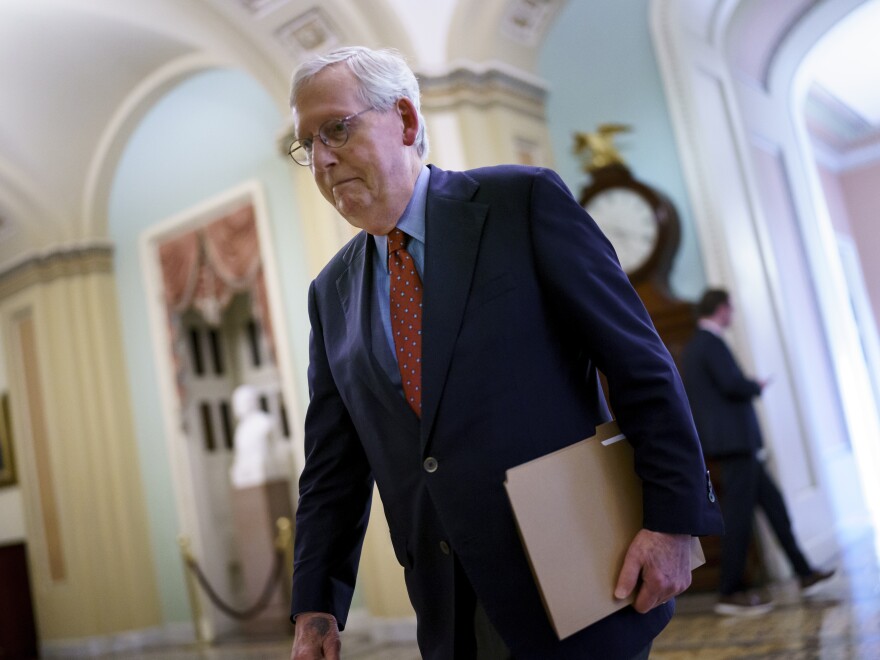The federal government is on the brink of a partial shutdown after Senate Republicans blocked debate on legislation that would have simultaneously funded the government and suspended the nation's borrowing limit.
The bill, which needed 60 votes to proceed, failed 48-50, as Republicans followed through on a threat to block the spending measure over objections to an unrelated spending package currently being negotiated by Democrats.
The legislation that was blocked Monday would have extended current spending levels through Dec. 3 and suspended the cap on federal debt through the end of 2022.
"The Republican Party has now become the party of default, the party that says America doesn't pay its debts," Senate Majority Leader Chuck Schumer, D-N.Y., said after the vote. "Let me be clear, what the Republicans in the Senate did tonight was not normal. This isn't your typical Washington fracas and it shouldn't be treated as such. It has far more severe consequences than the typical political catfight."
Senate Republicans have said since at least July that they fully support the federal spending extension but not the debt limit measure. Senate Minority Leader Mitch McConnell, R-Ky., has ignored Democrats' argument that Republicans helped drive up current debt levels when they authorized tax cuts under former President Donald Trump and by supporting bipartisan COVID-19 relief spending.
"As we speak Democrats are behind closed doors assembling a multitrillion-dollar reckless taxing and spending spree," McConnell said Monday afternoon. "There's no chance Republicans will help lift Democrats' credit limit so they can immediately steamroll through a socialist binge that will hurt families and help China."
Democrats must now decide if they are willing to remove the debt limit provision in order to prevent a government shutdown. Current funding runs out at the end of the day on Thursday and lawmakers are also eager to enact other elements of the bill, like money for communities hit by natural disasters and $6.3 billion in aid for Afghan refugees.
The debt limit has become a perennial proxy fight in Congress as lawmakers from both sides have tried to use the must-pass vote to get leverage on unrelated political goals. While there have been instances in which both sides readily agreed to adjust the borrowing, this is not the first risky standoff over borrowing.
Congress needs to raise the debt cap in order for the federal government to keep making payments on debt that has resulted from earlier spending, or risk a federal default. Experts at the Bipartisan Policy Institute think tank estimate that the current borrowing authority will run out sometime between Oct. 15 and Nov. 4, but the exact date is imprecise.
Copyright 2021 NPR. To see more, visit https://www.npr.org.








